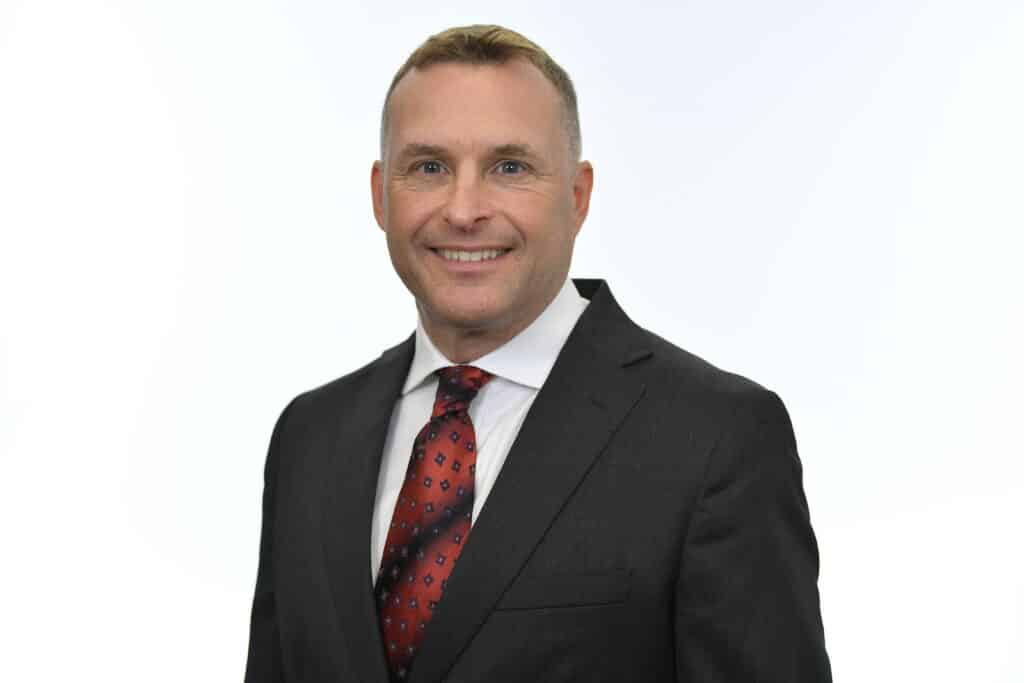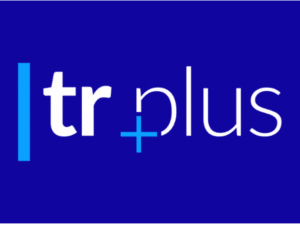Beyond the business case: interview with David Pearson, DEI strategy and transformation expert
Are you part of our Belong Amsterdam network? At The SR Group, we’re dedicated to advancing diversity, equity and inclusion (DEI) practices and fostering inclusive recruitment.
Our Belong Amsterdam network is a community curated by our recruitment team in Amsterdam. We give HR professionals early access to resources and events tailored especially for them around inclusive hiring.
Our recent Belong event featured special guest speaker David Pearson – a market-leading expert in DEI strategy and transformation from Pinsent Masons Brook Graham.
Since then, our own Rachael Crocker sat down with David to talk more about his career, advice for companies around inclusive hiring practices, the risks of failing these practices and the role of leadership in inclusive cultures.

David Pearson is a globally recognised leadership and inclusion expert, keynote speaker and Principal Consultant with extensive experience advising organisations on all aspects of DEI.
With a background spanning organisational change, strategy, economics and corporate finance, David has held senior in-house and consulting roles at KPMG and Gowling WLG and has contributed to global advisory panels including Hyatt Hotels and the Business Disability Forum.
He’s the creator of the UK’s only in-house inclusive leadership certification and has received multiple accolades, including NatWest Top 10 Diversity Champion and Channel 4 Diversity Hero of the Year.
Can you tell us about your current role and your work within the DEI space?
I advise clients of all sizes from all sectors and in all locations globally on every aspect of diversity, inclusion and belonging, with an emphasis on supporting organisations to understand what kind of maturity profile they would like to pursue.
“I really started to realise that DEI invites you to step out of your bubble and look at just how expansive the field is.”
I help them develop and implement robust DEI strategies – upskilling boards, leadership teams and managers on personal and collective DEI aptitude. I also improve their diversity and inclusion data and analytics – integrating insights from neuroscience, psychology, behavioural economics, organisational design, change management and culture into my approach.
I particularly enjoy helping clients connect more strongly with the commercial and market-facing aspects of DEI, which can be overlooked or trivialised into “the business case for DEI”.
Was there a defining moment in your career that shaped your perspective on DEI?
I think it was when I made the transition from advising clients in a corporate finance role to working as the first ever Director of Global Inclusion & Diversity in a large professional services firm, responsible for 200,000 people in 154 countries.
“Companies must realise that if they are not hiring inclusively, then they are losing top candidates to competitors.”
I had already decided that “people were more interesting than spreadsheets” (hence the move from deal advisory work to a people and culture role). But when I found myself engaging with layers and layers of different perspectives, cultures, languages, time zones, social norms, national characteristics and views about the value of DEI, I really started to realise that DEI invites you to step out of your bubble and look at just how expansive the field is.
It helped me kiss goodbye to some of my conditioning, become more aware of my blind spots and let go of perfectionism (you simply cannot pursue the perfect when every stakeholder you deal with has their own view of what’s the ideal outcome!)
What is one step every company can take to make their hiring practices more inclusive?
In some ways this is a consultant’s answer, but I would recommend undertaking a detailed audit of hiring practices. I don’t mean mapping out the process like an engineer and locking a few people in a room to design improvements in isolation.
I mean a proper audit with a desktop review of documentation, attraction materials and websites plus a skills review of everyone involved in hiring (including external recruiters) and engagement with stakeholders. This includes talking to real people who have taken up roles and turned down roles, and those who never wanted to even apply because of what they saw (e.g. on the website, or at an employer recruitment event).
“It’s crucial that inclusive hiring and retention are already embedded in the way a company does business, rather than being a fragile add-on.”
The reason is that you cannot know what will make a difference to your hiring practices if you don’t understand what the barriers, bottlenecks and areas of bias currently are, and you cannot know that just by reading documents or talking internally – you must engage with people externally too.
But to take this suggested step effectively there is a pre-condition needed. Companies must realise that if they are not hiring inclusively, then they are losing top candidates to competitors. Once you realise that fact, you can then engage fully, and the small price involved in commissioning an expert, professional diagnostic of hiring practices will repay itself over and over.
How can companies uphold inclusive hiring and retention practices amidst the challenges of rapid growth or transformation?
It’s natural for hiring managers to seek safety during times of change. But we know from solid research that when we are under pressure, that’s the time we are most likely to act on our biases rather than from a considered and logical place. This means hiring and retention decisions are going to be made when we are at our worst and are not likely to be wise in the long run.
“Many employers rely on clunky tools like exit interviews to detect issues around DEI; but who is going to be fully frank in an exit survey or interview, particularly one conducted internally?”
So it’s crucial that inclusive hiring and retention are already embedded in the way a company does business, rather than being a fragile add-on that gets dropped in times of stress. As a leader you wouldn’t condone taking blatant health and safety shortcuts or circumventing the law just because of rapid change, because you’d know there would be serious consequences, so why would you cut corners and walk away from inclusive practices in times of change?
Wise hiring managers know that there is a competitive advantage in accessing and retaining talent no matter what the market or organisational conditions.
What are some of the hidden costs businesses face when they fail to meaningfully invest in DEI?
An obvious one is employee churn; although high staff turnover itself is visible, what’s driving it isn’t always visible. So there can be costs mounting up because people do not feel that they belong, or are valued, and they exit the business.
Many employers rely on clunky tools like exit interviews to detect issues around DEI; but who is going to be fully frank in an exit survey or interview, particularly one conducted internally? Ideally, an independent third party is needed to ensure departing staff feel comfortable sharing their concerns about DEI, and these insights can be used to identify patterns and address hot-spots in the organisation.
“Who wouldn’t want to work in a place where they could put their hand on their heart and say, “I truly feel loved here”!”
Another hidden cost is missing out on the best talent because people mistakenly think that meritocracy and inclusive practices are in conflict, but in fact they aren’t. Excellent candidates from under-represented backgrounds often self-select out because they don’t see that a company is genuinely committed to DEI, and you’ll never even know that you missed out on that amazing talent because you lost them even before the attraction stage.
And for those who do take up a role – if the voices in your organisation are obsessed with meritocracy but fail to realise it means hiring and promoting the best people (rather than hiring and promoting the people perceived through biased lenses to be the best) then there’s a high likelihood that diverse talent will go elsewhere.
What does it take to cultivate a lasting sense of belonging in the workplace?
My take on this differs from most people! More than seven years ago I started asking myself why the word “love” was never mentioned in the workplace, why it was effectively taboo. (At most, people might say they “love” their job, but the idea that you would say you feel loved in the workplace was just not something that people said).
I started raising this question at every meeting I could, in every forum I attended; and I noticed it was like a bolt of electricity running around the table when I asked this question. People would say, “I’ve never thought about that, but now that you mention it, why is it that we never do talk about love in the workplace?”
“Feedback from work I do with my clients repeatedly shows that employees want leaders to be visible and vocal champions of DEI.”
And yet, when you think about the most powerful image of belonging there is – for me it’s of a mother holding her baby in her arms – that strong bond of love is one of the most fundamental things that makes us human.
So, cultivating a lasting sense of belonging in the workplace means, for me, to find ways as leaders, managers and team members of making others feel a sense of belonging equally as strong. Not by physically holding someone, but by holding them metaphorically; by being dependable, consistent, authentic, truthful, courageous, cultivating empathy and seeking the good of the other. Who wouldn’t want to work in a place where they could put their hand on their heart and say, “I truly feel loved here”!
What role should leadership play in supporting inclusive cultures and how can HR teams effectively hold them accountable for progress?
In many organisations, managers and leaders are promoted for technical or commercial skills, not for people skills. So before leadership engages on the issue of inclusive culture, it’s worth doing a reality check on leadership skills in general and weaving cultural competence and inclusive leadership acumen into leader development.
“Now, employees are demanding real-time updates on progress and will speak up if they feel that progress has stalled.”
Feedback from work I do with my clients repeatedly shows that employees want leaders to be visible and vocal champions of DEI, personally committed to fostering an inclusive culture. This means being present in person at events, actively participating in initiatives, talking to people and teams, listening, learning and role modelling.
HR can be in a tricky position when it comes to leader accountability, as they are not always empowered to play that role. But where they are, they should support leaders to develop personal and collective objectives around DEI – ensuring that they are very specific, measurable and suitably challenging, and that there are real consequences for failing to achieve them.
A common failure is to let leaders get away with vague and undemanding objectives – and even worse when they fail to achieve even them, turn a blind eye or impose zero consequences.
What developments or trends give you confidence in the future of inclusive workplaces?
Employees themselves now have much higher expectations of their employers and their workplaces than even ten to 15 years ago, so I think that will drive a lot of progress (although the relative power balance between employers and employees does vary a lot from sector to sector and location to location).
A noticeable shift has been that even as recently as a few years ago, employees largely trusted their employers to “take care of DEI” and were content with an annual update from their employer summarising what had happened in the last year. Now, employees are demanding real-time updates on progress and will speak up if they feel that progress has stalled or the employer has failed to adequately explain its plans to bring about real change.
Pressure from the talent market will also continue to drive progress – again, it wasn’t very long ago that talented candidates from under-represented backgrounds were struggling to get interviews. Now, in many places they are turning roles down because they have multiple offers and options, and they are seeking out the most inclusive places to work.
Of course many issues remain, and it would be a mistake to be complacent, but social and economic forces like these are pointing things in the right direction for inclusive workplaces to remain a core aspiration for employers.
Get in touch with us today to discuss your hiring needs:



